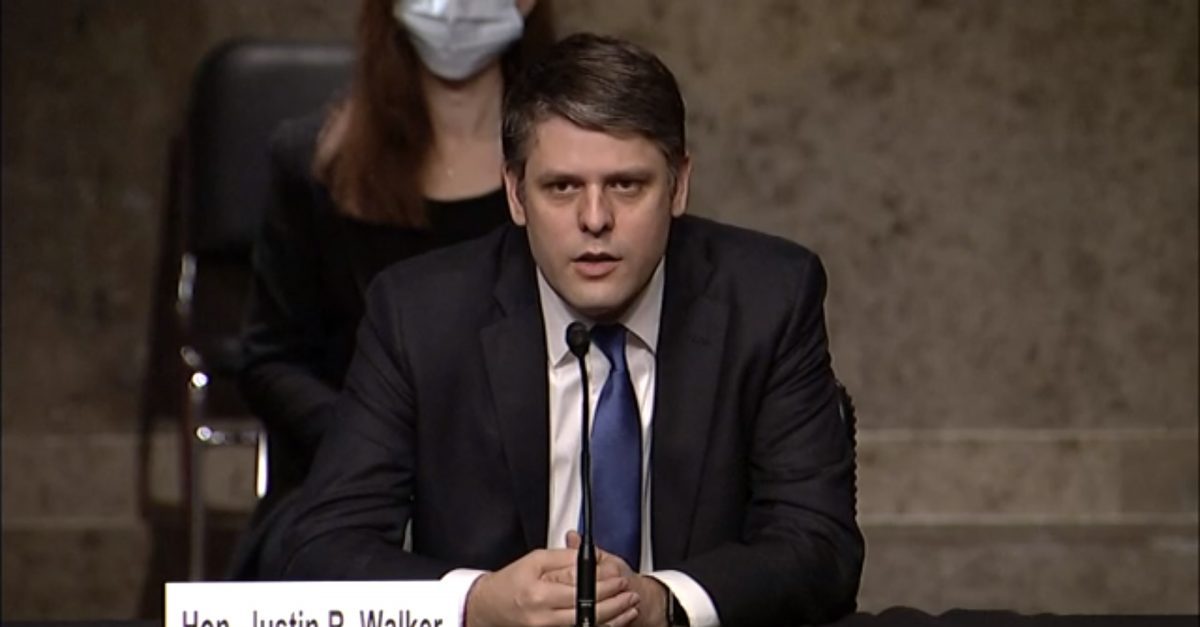
A Kentucky woman is determined to refuse service to LGBT clients, and the latest Trump appointee on the D.C. Circuit just ruled in her favor. This time, we’re talking wedding photos instead of cakes.
Wedding photographer Chelsey Nelson sued the city of Louisville over its anti-discrimination “Fairness Ordinance,” and the city moved to dismiss the case. Absolutely no one had even asked Nelson to photograph their same-sex wedding, but she went to court nonetheless. Furthermore, Nelson is seeking to have the ordinance invalidated against all businesses – not just against her own. And it appears that Nelson’s lawsuit afforded U.S. District Judge Justin Walker the perfect opportunity to bestow a parting gift to his liberal hometown as he heads to the D.C. Circuit.
Louisville’s 1999 law prohibits discrimination based on sexual orientation and gender identity in housing, public accommodations, and employment. It also requires that companies serve LGBT customers, and prohibits advertising that a business will refuse to serve LGBT customers.
Judge Walker’s ruling (denying the city’s motion to dismiss and granting a preliminary injunction to Nelson) was heavy on religious freedom and light on the value of anti-discrimination laws generally.
Peppered throughout the opinion were multiple references to Nelson’s belief that “marriage is between one man and one woman.” What Walker left out, however, was any acknowledgment of the government’s unique role with respect to marriage. Nelson, Walker explained, “believes marriage is a gift from God that should be treasured and celebrated.”
Walker also characterized Nelson’s self-imposed battle with the law as “a choice between gay rights and freedom of speech.” He went on at length about how photography and art are speech, but did not mention the many categories of speech that are unprotected under the First Amendment.
The judge also took particular aim at the portion of the Fairness Ordinance that would prohibit Nelson from posting that she would refuse services for same-sex weddings. The restriction is unfair, ruled Walker, because a person who advertised that she would photograph same-sex weddings would be allowed to say so. Because the two situations would be treated differently under the law, reasoned Walker, the law constitutes illegal content-based regulation.
The source Walker’s authority was not, as one might expect, primarily the recent decision in Masterpiece Cakeshop. Rather, he purported to be strengthening diversity with his ruling. Walker quoted from the decision in Obergefell—the landmark Supreme Court case that ruled same-sex marriage to be the law of the land:
The First Amendment ensures that religious organizations and persons are given proper protection as they seek to teach the principles that are so fulfilling and so central to their lives and faiths, and to their own deep aspirations to continue the family structure they have long revered.
He was silent, however, on why SCOTUS precedent aimed at protecting “religious organizations” or “teaching principles” of religion would be relevant to wedding photographer who hasn’t even been asked to take pictures at a gay wedding. Instead, he framed his opinion as one that encourages open discourse and the free flow of ideas. Same-sex marriage wasn’t the cataclysm that so many opponents had predicted — and according to Walker, that’s why it was important to rule in Nelson’s favor:
“That our society has largely accepted same-sex marriage ‘is all the more reason to protect the First Amendment rights of those who wish to voice a different view.'”
Walker also threw serious shade at liberal icon Justice Ruth Bader Ginsburg, who recently dissented in another religious freedom case. Ginsburg accused the High Court of going too far and protecting religious freedom “to the nth degree.” Walker noted that the conservative majority was “unphased” by this:
While some have criticized recent Supreme Court majorities for securing the rights of religious Americans “to the nth degree,” a solid majority on the Court appears unphased.
Judge Walker, a former clerk for and outspoken supporter of Justice Brett Kavanaugh, was confirmed to the U.S. Court of Appeals for the D.C. Circuit in June by a Senate vote of 51-42. His confirmation was controversial. One reason was the’s ABA reversal on Walker’s qualifications. The ABA said that Walker was not qualified for the district court, but said he was qualified for an appellate court job.
In his short time on the federal bench, Walker has emerged as a champion for conservative causes. Earlier in the coronavirus pandemic, Walker ruled in favor of a church that wanted to hold drive-in services. In the opinion, Walker accused the mayor of “criminalizing Easter.”
[Image via Senate Judiciary Committee/screengrab]